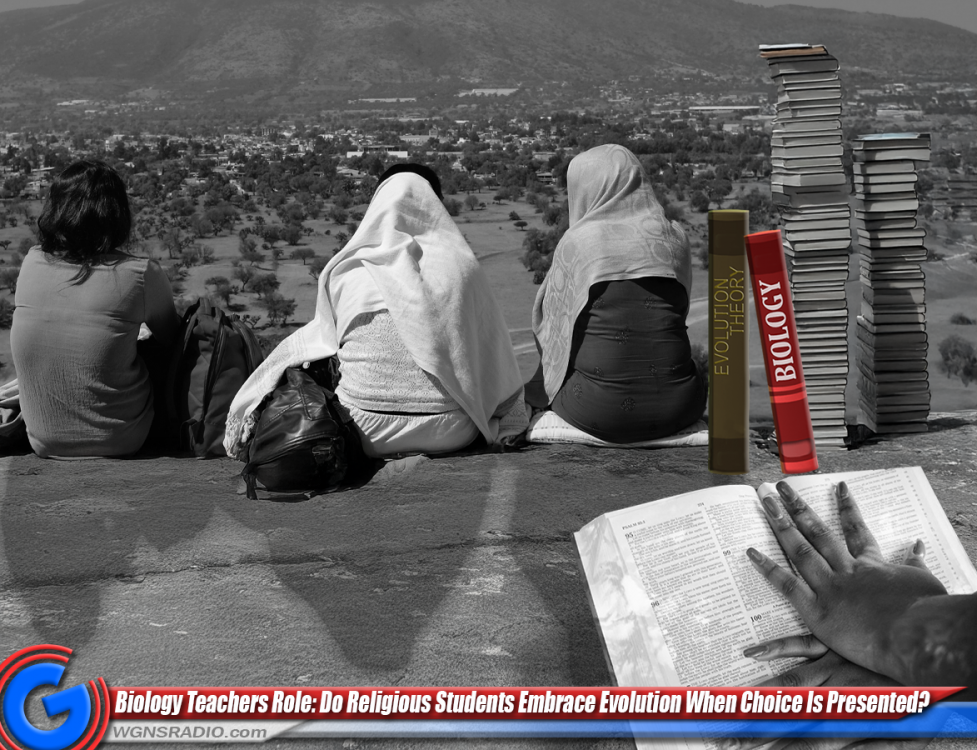MURFREESBORO, Tenn. — Middle Tennessee State University biology researcher M. Elizabeth Barnes has collaborated on a study aimed at improving evolution education in classrooms, emphasizing conflict-reducing practices to enhance acceptance of evolution among students. The research, involving 6,719 college biology students from 55 courses across 14 states, was published in the journal PLOS One.
Barnes and her team report they found that many students mistakenly believe that accepting evolution contradicts their religious beliefs. To address this, the team highlighted areas of compatibility between evolution and religion, which helped reduce psychological barriers for highly religious students. The study indicates that presenting evolution as a choice, rather than a conflict with personal beliefs, enhances acceptance across all student demographics.
Barnes received significant recognition for her work, including a National Science Foundation grant and an Outstanding Teaching award. The project involved eight years of research, starting at Arizona State University, and engaged over 75 biology instructors. The findings suggest that college educators can play a vital role in bridging gaps between religion and the acceptance of evolution, potentially leading to broader public acceptance of this vital scientific concept.
Graduate students Rahmi Aini and Alexa Summersill contributed significantly to the project, gaining valuable experience in research and data analysis. Aini expressed that the research was enlightening, especially due to her diverse cultural background, while Summersill noted that the inclusive approach of the study made students more open to accepting evolution.
REPORT: MTSU Biology Researcher Co-Authors
Published Study on Reducing Evolution Education Conflicts
Following two major professional awards, Middle Tennessee State University biology researcher M. Elizabeth Barnes has collaborated on another recently published project on teaching evolution in the classroom.
The research of students in biology classes involved conflict-reducing practices in evolution education that are associated with increases in evolution acceptance in a large naturalistic study. It appeared in December in the San Francisco, California-based Public Library of Science, or PLOS, peer-reviewed, open-access journal PLOS One, highlighting the research led by MTSU doctoral student Rahmi Aini of Nashville, Barnes and colleagues.
Evolution is the process by which different kinds of living organisms are thought to have developed and diversified from earlier forms during the history of the Earth.
Many students have a misconception that ideas of evolution replace or compete with religious explanations for the development of life. Barnes’ conflict-reducing practices include showing students areas of compatibility between evolution and religion so that students do not feel like someone has to abandon their religious faith to accept evolution.
“We show that by having cultural competence with students from a variety of religious backgrounds, by not forcing our views on students, and by showing compatibility between religion and science we can actually increase students' openness to evolution,” Barnes said. “We think this is encouraging in these times of conflict.”
Barnes was previously awarded a five-year, $1 million National Science Foundation early CAREER grant and most recently received the Outstanding Teaching in General Education Award during the university’s annual fall faculty meeting to kick off the fall semester.
‘Unnecessary’ evolution, religion conflict - The evolution education study, funded by the NSF, indicates evolution is foundational to biology, but currently around half of the U.S. population rejects the idea of human evolution. One of the most important factors in the acceptance of evolution is perceived conflict between evolution and a student’s religious beliefs.
Eight years in the making — the nationwide survey began at Arizona State University when Barnes was a graduate student there and continued into 2024 and beyond — the authors have so far surveyed 6,719 college biology students in 55 courses and 14 states.
Much of the research by Barnes, Aini and Alexa Summersill of Smyrna, a graduate student in the clinical psychology program who helped with data collection and analyses, came in Barnes’ Social Perceptions of Science Lab in the MTSU Science Building.
In addition to assessing religiosity, they asked the students for their experiences of an instructor teaching evolution with conflict-reducing practices.
Highly religious Christian students were more likely to accept evolution when instructors emphasized the compatibility of evolution and religion, the study revealed. However, all students, regardless of whether they were religious or not, were more likely to accept human evolution when instructors emphasized that it was their choice to do so.
“This study reinforces a growing number of research studies showing that conflict between religion and evolution is often unnecessary,” Barnes said. “College instructors can play an important role in bridging the divide. By adopting practices that reduce perceived conflict, our findings suggest that more students and the broader public can come to embrace evolution, the cornerstone of the biological sciences.”
The study included 10 researchers and more than 75 biology instructors “willing to let us study their courses to accomplish our goal,” added Barnes.
Grad students’ perspectives - Aini, 29, born and raised in Indonesia, said her participation has been rewarding “because I have a number of similar interests with Dr. Barnes in what I want to pursue in my career. I want to teach biology at the university level and conduct research in biology education. Coming from a different and unique cultural background, this research in the U.S. has been particularly fascinating, and I have learned so much. It has helped me to better understand how to teach evolution using an evidence-based approach.”
As part of the project, Aini played a key role in leading complex data analyses to address research questions.
Involved with the study for three years, Summersill, 22, a Smyrna resident, said her first dive into research “prepared me for graduate school. This was a big project. I found that this work was interesting, and I wanted to get into the lab.” Her takeaways: The study “was inclusive, it did not force a viewpoint and more students were willing to accept evolution.”





